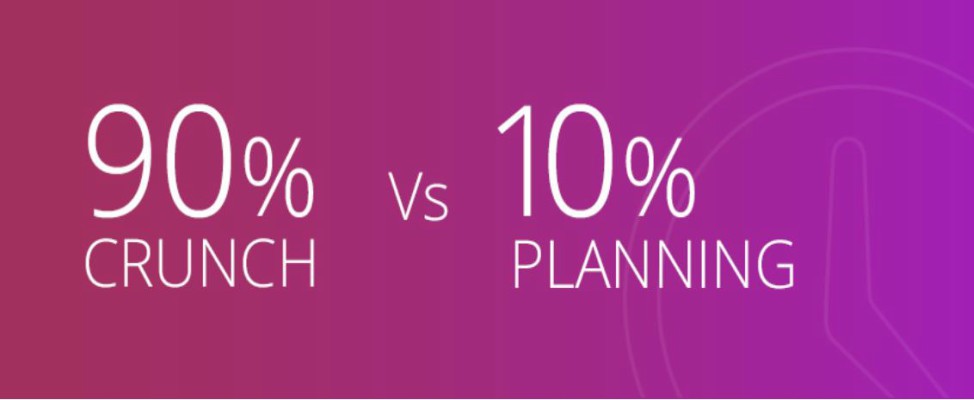9 Skills needed by a CFO

The role of the CFO has changed rapidly. A chief financial officer can no longer simply rely on crunching numbers while focusing solely on a company’s balance sheet
UK’s Business Insider sat down with Ash Noah, vice president of CGMA External Relations at the American Institute of CPAs (AICPA). Noah is the former CFO of the international unit of TNT Express, a global transport and logistics provider. In his role, he led finance teams in 45 countries through a significant transformation. Today his team travels all over the world, talking to CFOs and other financial experts about company needs, transformative changes in their industry, and much more.
Noah painted a picture of what the CFO of the future will look like, and it’s a stark contrast from today’s financial leaders. The 9 essential skills Noah outlined are:
- CFO’s must become analytical wizards – The current role of the CFO is very transactional. However, that is starting to change. Noah says CFOs are quickly becoming more analytical at their core.
“We should only be spending about 10% of our efforts and time on transactional and 90% of our time on analytics,” he says. “Only about 3% of organizations are at the desired state. Most organizations are in the 50/50 range, and most companies are trying to move up that chain. The more time you spend on analytics the more you help the business and enable effective business partnering. The CFO of the future will be a true business partner who will provide these insights.”
Noah says there is already a “pull from businesses” as they seek out more analytics data and that CFOs are cognizant of that pull.
- CFO’s must manage an increasing amount of risk – The “clear and present danger” is that a business model is going to be “disrupted by technology,” he says. CFOs are now constantly asking, “Who is going to put me out of business tomorrow?”
The CFO of the future needs to be beside the CEO, helping to navigate these risks. “Making your business resilient and strengthening your business model is what the CFO of the future will have to do,” Noah says.
To underscore his message, Noah points to the S&P 500. In the 1950s, most companies featured on the list would remain there for 60 years. Clayton Christensen of Harvard University says today’s average S&P 500 company will drop off the list in 18 years. Based on those numbers, 75% of the current S&P 500 will not be featured in 2027.
- CFO’s must adapt to new technology – Noah says you must look at your business model and figure out how it can constantly be adapted and how you can finance that evolution. “How you use new metrics to enable innovation is an absolutely essential question for a CFO.”
CFOs can no longer rely on old tools and the traditional return on capital, return on investment, payback period, and all the measures that CFOs are so familiar with.
“The old way of thinking stifles innovation and ruins new business creation,” Noah says. “The CFO of the future must enable innovation and manage risk better.”
- CFO’s must become better at managing people – Noah says you have to use your technical skills in the context of the business to influence people and to lead change.
“Leadership, people, and business skills are absolutely crucial to the future of the CFO function,” Noah explains. “The more you move up, the more you want to make sure you have the right people and leadership skills. Typically finance functions have not paid attention to that in the past.”
- The CFO of the future must must guide must guide decisions in a politically charged atmosphere – The role of a CFO is to represent the organization and fight for the business models of the new world. Noah cites the example of Uber, which has been attacked by government agencies over its contractor-versus-employee structure and its general services.
“A CFO of the future needs to be at the forefront of providing the business with financial and business implications,” he says. “I would stop short of saying a CFO should lobby, but they need to be able to partner with their business in areas such as union regulations and minimum wages laws.”
He adds that CFOs need to be able to “measure political impact and show the effects it has in terms of dollars and risk. They also need to enable their partners to lobby and send the right type of messages.”
- CFO’s must manage big data – Data is becoming increasingly crucial to businesses, for the CFO this means controlling costs.
According to Noah, “We did a report on big data a few years ago, and 93% of people surveyed said the way decisions are made in the future will change because of data. We are not expecting CFOs to be data scientists — they don’t have to understand the algorithms — but the CFO of the future will need to be the connector between the business and data scientists.”
Noah also points out that CFOs in the future will need to be better adept at finding a business’ needs and solving problems as they arise. “They are the ones that will translate that to the data scientists,” he says. “They are the ones that will help them build the right queries and get the answer the business needs and then be able to take those insights back to the business in order to make them actionable.”
- CFO’s will effective decisions with the help of analytics from outside the business – Noah say’s “CFOs need to develop the right question when creating data sets”
He notes that a lot of companies are using big data to drive decisions outside of the enterprise: “Fundamentally it is unstructured; it is outside the boundaries of the enterprise. Right now a lot of the non-financial data is not trusted by owners of that data. However, 74% of companies are saying their gathered information is accurate.” He further say’s “To really get insights into a business you have to look at the underlying non-financial drivers to the financial information,”
- CFO’s need to understand business drivers –
Noah explains that “when we look at trends, the valuation of a company was traditionally based on 80% of the value created in the balance sheet by tangible items and about 20% of the value was intangible. There was a gap between the market cap of the company and the balance sheet valuation.” A study in 2010 found that if you look at S&P 500 valuations today, the gap between the balance sheet and the market valuation has become 80%. That means 80% of the valuation is no longer in the balance sheet.
“If the CFO is focused on the balance sheet and is focused on compliance, focused on processes and procedures and conformance, he’s not engaging in value creation,” Noah says. “The more significant value is now created from your intangible assets. The CFO of the future really needs to understand and become more of a P&L CFO to engage in value creation.”
He adds, “Value creation today is a knowledge-based economy. Companies are now more likely to create value using intangible assets and intellectual property. “
- Hiring decision’s will become a major part – Noah states –
“A CFO will need to have a structured approach to create the competencies a company needs, and they will need to fill in the gaps,” Noah says. “A CFO must adopt a structured-competencies framework and recruit and train new workers based on that framework. “
This article first appeared on the business insider UK and can be found here. All information collated above is from the original author and views of Ash Noah, VP of CGMA.






